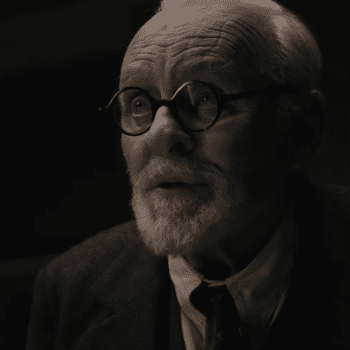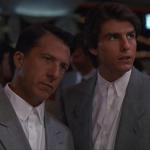Years from now—nay, decades—film historians will look back at 2017, rub their graying goatees, adjust their monocles and say, “Man, what was up with all those sequels? Who in their right mind would think anyone needed another Transformer movie?”
Their next thought would surely be, “But those superhero movies were sure awesome.”
And they’d be right. We’re unquestionably living in the golden age of cinematic superheroes, this year’s been the 24-karat cherry on top.
We’ve yet to see Disney/Marvel’s Thor: Ragnarok (which looks delightfully unhinged in the trailers), and who knows what Warner Bros.’ Justice League will look like this November. But even if both are duds, it can’t diminish what we’ve seen so far. Sony’s excellent Spider-Man: Homecoming cements 2017 as the best superhero movie year ever.
Sure, Homecoming has some problems from a family perspective, but overall it’s pretty delightful—fun and light and true to who I think Spider-Man/Peter Parker is. It’s as much a comedy as it is an action film, and as much about growing up as it is about being a superhero. It’s remarkable that another Spider-Man franchise reboot—the third in 15 years—could feel so special. It’s even more remarkable that this Spider-Man film, which locks Spidey into Marvel’s cinematic universe, could be made at all.
See, Spider-Man belongs to Sony. All the heroes in The Avengers are part of the Disney/Marvel entertainment leviathan. The idea that Disney and Sony would share the web-spinning superhero feels akin to the NBA’s Golden State Warriors loaning Kevin Durant to the San Antonio Spurs for a few weeks.
But in a dizzying display of corporate cooperation and common sense, both studios realized they had something to gain through partnership. Sony’s last attempt to reboot the web-slinger fizzled, but it desperately needs that bankable franchise character to drive reliable profits year after year. Meanwhile, Disney knows that incorporating Spider-Man into its massive Marvel universe drives yet more interest to the franchise. Oh, and since Disney and Marvel still get profits from Spider-Man merchandise (toys, clothes, toothbrushes), it behooves the studio to have a strong Spidey anyway.
So Sony, knowing Disney and Marvel know a thing or two about making good superhero movies, turned the keys over for Homecoming to Marvel’s President Kevin Feige—allowing Marvel to make the movie while keeping all its proceeds. Meanwhile, Marvel gets to incorporate Spider-Man into their own movies without sharing profits with Sony.
“I never thought we’d be able to make a Spider-Man movie set in our universe, and here we are,” Feige told the Los Angeles Times. “It truly was a dream-come-true scenario.”
The unlikely partnership led to a rare win-win-win: Sony now has what looks to be a box-office hit and a strong, bankable character for years to come. Disney brings one of Marvel’s greatest characters into its own universe, and Sony’s movies become advertising for the wider story the studio wants to tell. And fans … well, they just get a pretty great movie in Homecoming and appearances from Iron Man and Captain America. It’s like waking up on Christmas morning and learning that there really is a Santa Claus.
But let’s face it, we superhero fans have been opening presents for a while. Homecoming is the third out-of-the-park home run for the superhero genre this year—and one that illustrates not just the genre’s economic power, but its rich storytelling possibilities.
Logan, is a grizzled, bloody Western—an R-rated tour de force that takes a very familiar character (the X-Men’s Wolverine) into some stark, startling new terrain. From a purely cinematic standpoint, I think it’s the best superhero film since The Dark Knight.
In contrast, Wonder Woman is all superhero flick—a pure example of what the genre does so well. But the character also feels like a throwback to the principled protagonists of the 1940s and ’50s: the Cary Coopers, the John Waynes and Jimmy Stewarts of yore. In the midst of the movie’s 21st-century bombast, it still feels old-fashioned in the best of ways.
And then you’ve got Homecoming, a film that owes as much to 1980s John Hughes teen flicks as it does to the Avengers. (There’s even a delightful nod to Ferris Bueller’s Day Off.)
Add the dizzy-fun of Guardians of the Galaxy Vol. 2 to the mix, throw in the cheeky comedy of The LEGO Batman Movie, and you’ve got a superhero year for the ages. These movies aren’t just lucrative: They’re good. Those who poo-pooh superhero movies as explosion-filled pap for the masses haven’t been paying attention this year.
As a fan of superhero flicks, I’d like to think this train’ll go on forever—that every year we’ll see three or four or five great superhero flicks until I’m watching a 83-year-old Robert Downey Jr. rise from his wheelchair and slip into his Iron Man suit again. But therein lies the problem, doesn’t it? Superheroes may never grow old, but the actors playing them do. And so, frankly, do the storylines. Even though the films still make oodles of money, I wonder whether we’re hitting the point of over-saturation. I wonder whether we’re heading to a natural peak (perhaps Marvel’s super-stuffed Infinity Wars sequel, scheduled for 2019) that hides a cliff beyond. I remember that once upon a time, American moviegoers just couldn’t get enough Westerns … until one day, they all realized en masse that they could.
Maybe the future won’t always be so bright for our spangled do-gooders. But for now, fans like me can savor these superheroes and the quality films they anchor. And maybe we’ll look back, adjust our monocles and say, “Those were the days, weren’t they?”













